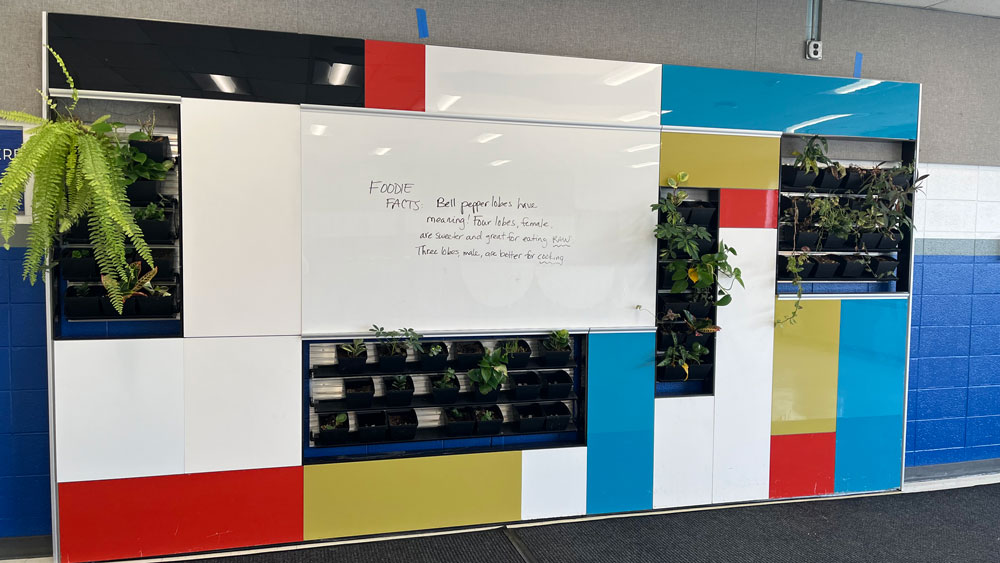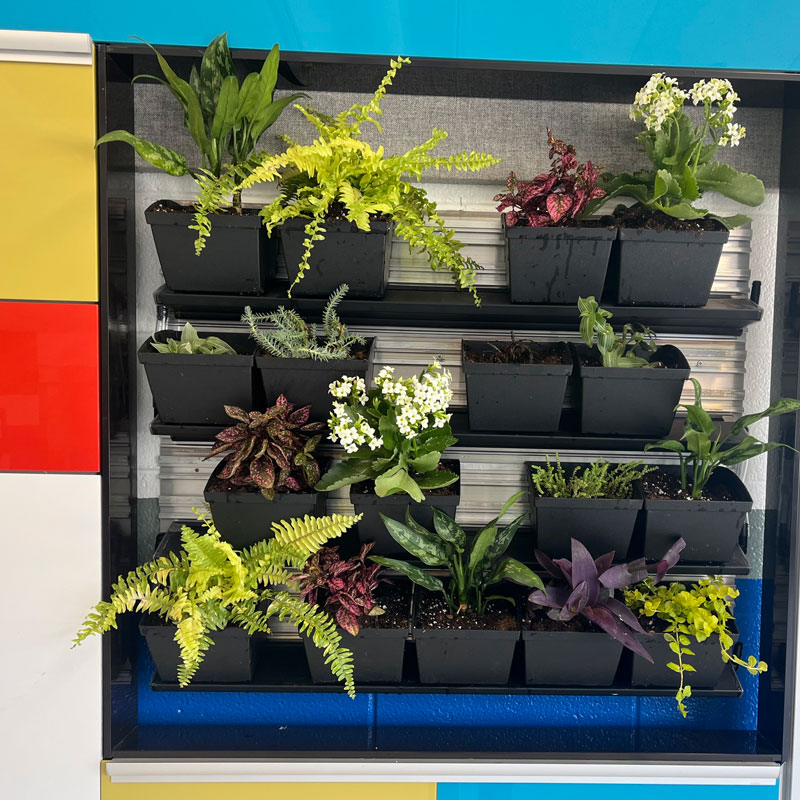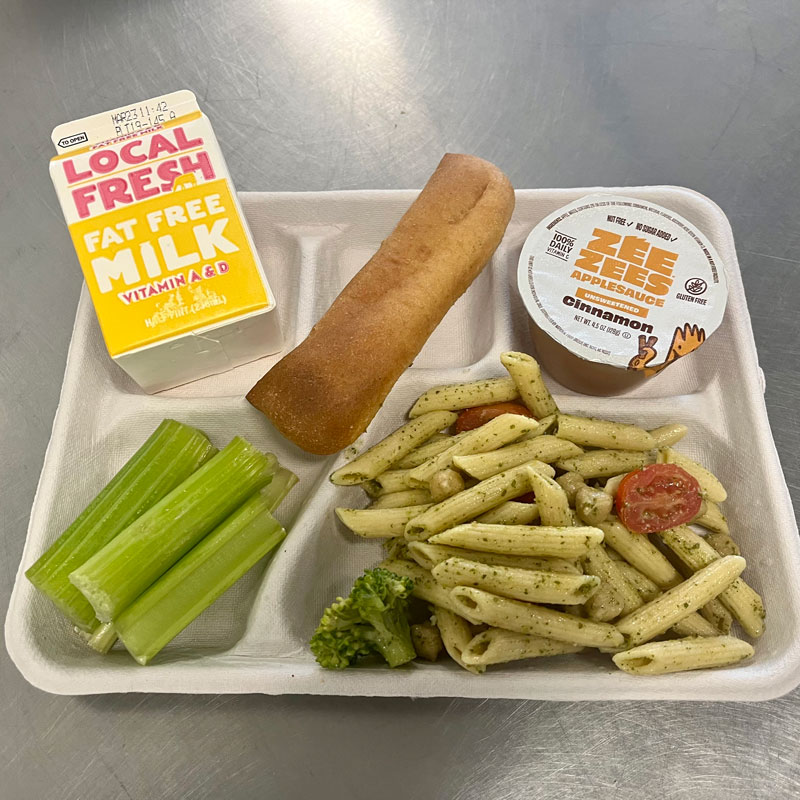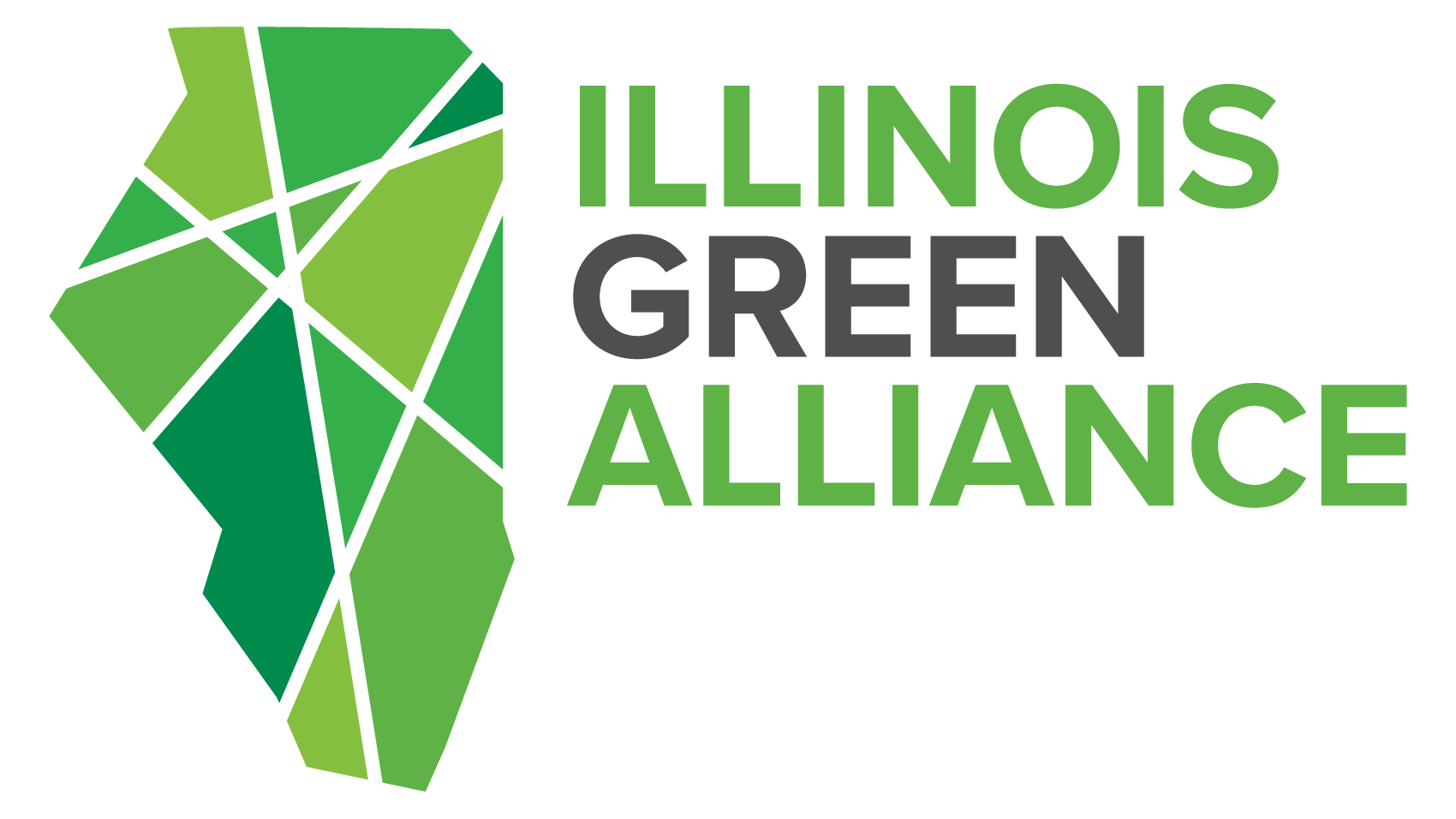
River Trails Middle School: Green Cafeteria
- Project Type: Path to Net Zero, Indoor Environmental Quality, Waste Reduction
- Students: 70
- Staff: 15
- Mentor: Jason Meyering, Jason Meyering Architecture
- Location: Mount Prospect, IL
- Grade Levels: 6th - 8th
The Project
As a participant in the 2022-23 cohort of the Illinois Green Schools Project, River Trails Middle School desired to green up their cafeteria space by reducing waste through purchasing choices, composting, recycling, and share programs for food recovery. A large, high impact wall houses a DIRTT Breathe living wall. To draw attention to the other green efforts in this space, River Trails hopes that the living wall's plants will highlight and visually mark the cafeteria as actively working towards a path to zero waste.
The wall is relatively low maintenance, but has proven to require some grow lights, especially in the winter months. Students planned, researched, and coordinated the installation of grow lights in this space to maintain the plants. An Illinois Green Schools Project mini-grant supported grow lights for the living wall.
The Process:
To begin greening up the cafeteria space, the Director of Food Services audited the velocity reports of the broadline vendor which revealed that all-in-one cutlery kits and styrofoam trays were the top purchases of the department. Realizing that would have the greatest impact for improvement, she reestablished the contract with the local compost hauler from pre-covid operations. This time, setting up tray composting at all four schools instead of just the middle school. By working with sales reps, she was able to source single-dispense cutlery, napkins and eliminated straws. Individual condiments were switched to bulk dispensers.

The next step was to contact the DIRTT company that produced the living wall for consultation. Then plants were sourced and installed. Maintenance has been provided by the food service department. Prior to being awarded the mini grant, the Director of Food Services met multiple times with the Director of Buildings and Grounds to plan the necessary grow lights.
The Director of Food Services tried to establish a green team, but pivoted to working with the existing STEAM classes, 8th graders, to explore recycling in the cafeteria. They did research and learned about recycling in the 2nd trimester. The 3rd trimester classes worked to implement recycling in the cafeteria.
Menu changes happened three times throughout the school year. This was the opportunity to work toward Meatless Mondays.

Outcomes:
Results were the elimination of styrofoam trays in the cafeteria for all students in the district, impacting 700 meals daily. Although the single-dispensing cutlery is more expensive, it reduced waste of unnecessary items to the user. Condiments not only eliminated packaging, it made it easier for our students and lunch monitors to use.
The living wall created a nice esthetic to the cafeteria and also an opportunity to share educational information via the whiteboard. The grow lights allowed for better maintenance of the plants and less need for replacing dead plants. With the improvement in growth, future possibilities to plant edible plants to utilize in the cafeteria increased.
The recycling program in the cafeteria increased 8th grade students’ knowledge and awareness of recycling. And reduced the landfill waste.
The share baskets established a landing zone for uneaten, unused items that were available for snacks outside of meal periods with the use of the FuelUp to Play cooler in the hallway.
Meatless Mondays were achieved by spring trimester - menuing nut-free pesto pasta salad, and a taco salad.
What’s Next:
River Trails plans to work with their Family & Consumer Science teacher to implement a spring planting and harvesting of kale, radishes, lettuce and more to use in their production kitchen to serve to students.
